From help.computerisms.ca
Jump to navigation
Jump to search
|
|
| Line 35: |
Line 35: |
| | | | | |
| *If Thunderbird pops up a warning box regarding the Security Certificate, click the "Confirm Security Exception" button | | *If Thunderbird pops up a warning box regarding the Security Certificate, click the "Confirm Security Exception" button |
| | **See [[Security Certificates]] for more information |
| |[[File:Help.tbird.cal.new.cal.5.png|center|500px]] | | |[[File:Help.tbird.cal.new.cal.5.png|center|500px]] |
| |- | | |- |
Revision as of 23:56, 15 July 2012
Email
Calendar
Before you begin:
- Open your Thunderbird email client and click the file button in the top left hand corner
- Select New, and then select Calendar
|
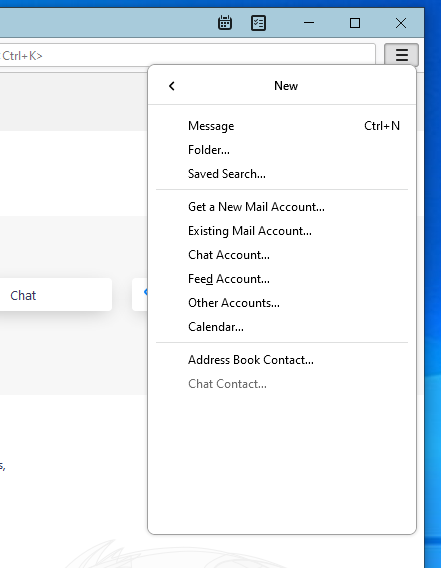
|
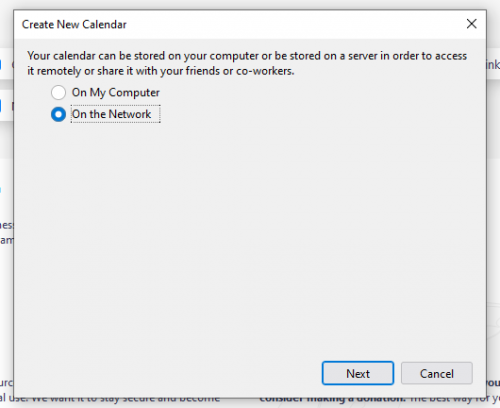
|
- In the window that opens, be sure to select "On the Network", then click Next
|
- In the next window, ensure under format that Caldav is selected
- For the location entry, you will need to write the calendar address followed by the DAV Path
- Put a check mark beside Cache if you want to be able to read your calendars when you are not connected to the internet
- Note that you will not be able to edit a calendar unless you are connected to the internet
|
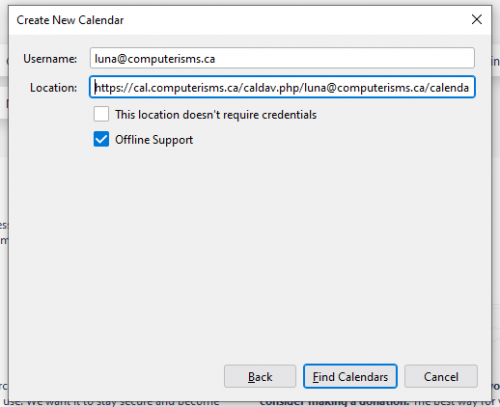
|

|
- At this point, Thunderbird will want you to name your calendar.
- The name is arbitrary, it can be anything that is meaningful to you. Thunderbird does not care what you name it, only that you name it.
- Choose a different colour if you wish, and deselect "Show Reminders" if you don't want them
- Select the address that will be associated with this calendar
|
- If Thunderbird pops up a warning box regarding the Security Certificate, click the "Confirm Security Exception" button
|
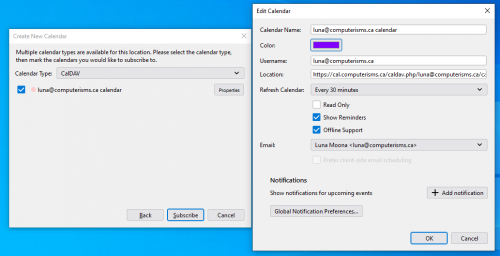
|
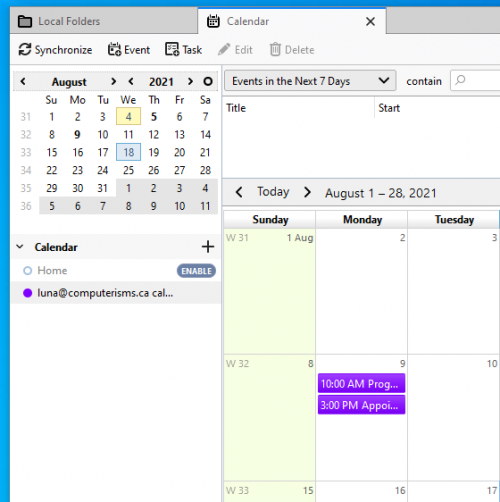
|
|
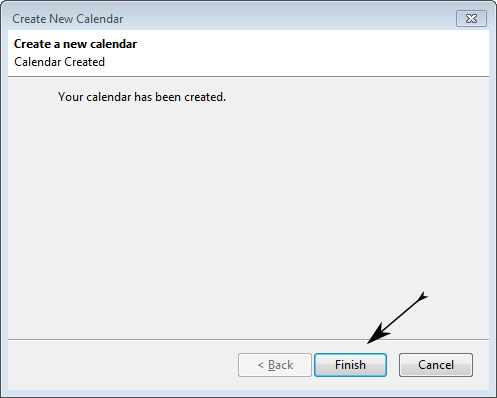
|
|
|
|
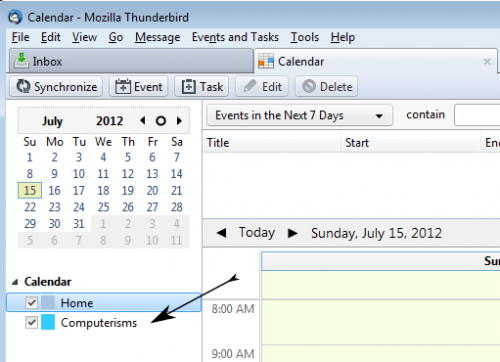
|
Shared Address Book







